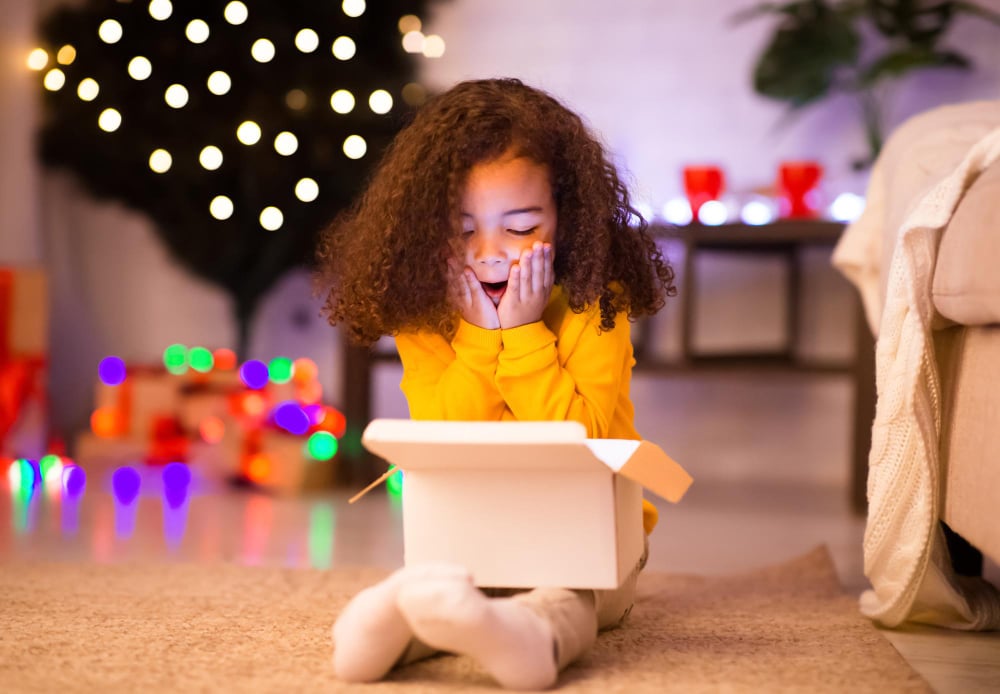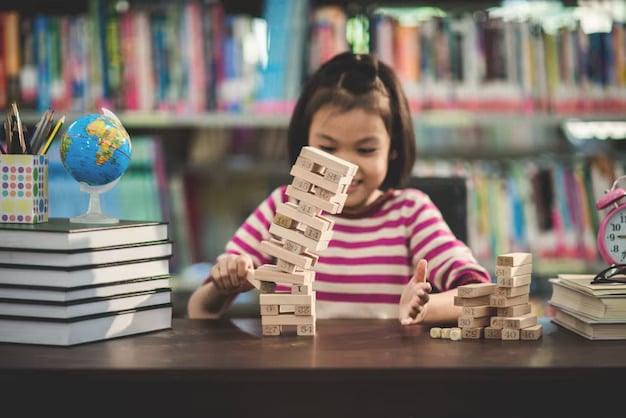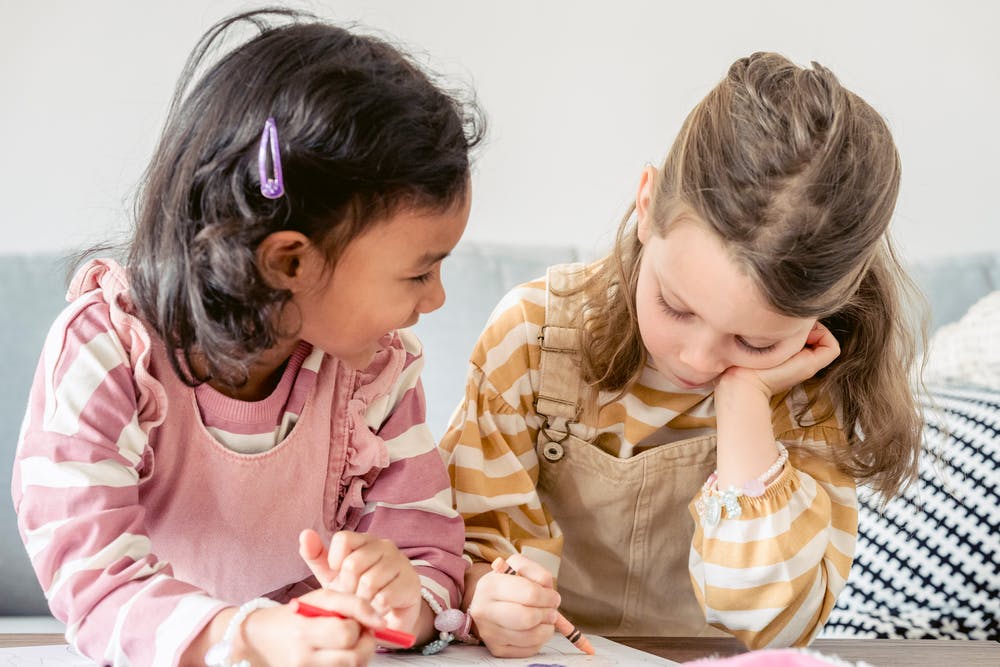Funny anecdotes and advice for helping children navigate holiday stress and overstimulation
 The holiday season is a time of joy, celebration, and togetherness, but it can also be a source of #stress and anxiety for children. As families gather to partake in festive traditions, the excitement can sometimes #lead to overwhelming emotions and challenges for the youngest members.
The holiday season is a time of joy, celebration, and togetherness, but it can also be a source of #stress and anxiety for children. As families gather to partake in festive traditions, the excitement can sometimes #lead to overwhelming emotions and challenges for the youngest members.
Managing Holiday Stress
By recognizing triggers and implementing practical coping mechanisms, #parents can create a more manageable and enjoyable holiday experience for their kids. This includes managing expectations, limiting activities, and providing support during transitions.
To help children navigate holiday stress, consider the following actionable tips:
-
Recognize Signs of Stress: Be vigilant for signs of stress in your children, such as irritability, withdrawal, or physical complaints like tummy aches. Understanding how holiday stress manifests can help you intervene #early and provide the necessary support.
-
Stick to Routines: Children thrive on routine. Try to maintain regular meal and #sleep schedules, even amidst holiday festivities. If routines are disrupted, aim to return to them as soon as possible to provide a sense of normalcy and security.
-
Limit Activities: The holiday season can be packed with events. Help your child prioritize which activities are most important to them and learn to say no to others. Overcommitting can lead to exhaustion and anxiety, so focus on quality over quantity.
-
Schedule Downtime: Incorporate quiet time into your holiday plans. Designate specific periods for relaxation or “do nothing” days, allowing children to recharge and engage in creative #play without pressure. This can help them process their feelings and reduce stress.
-
Prepare for Overstimulating Events: Large gatherings can be overwhelming. Discuss potential triggers with your child and create a plan for taking breaks. Consider bringing comfort items, such as a favorite toy or noise-canceling headphones, to help them cope with #sensory overload.
-
Encourage Outdoor Play: Fresh air and physical activity can significantly improve mood and reduce stress. Make it a point to spend time #outdoors, whether it’s a family walk, playing in the snow, or simply enjoying nature. This can serve as a reset for both children and adults.
-
Focus on Togetherness: Shift the emphasis from material aspects of the holidays to spending quality time together. Create family traditions that foster connection, such as cooking together, playing games, or volunteering for a local charity. These moments can create lasting memories and strengthen family bonds.
-
Model Healthy Stress Management: Children learn by observing their parents. Share your own stress management techniques and demonstrate how to handle overwhelming situations calmly. This not only teaches them valuable coping skills but also reassures them that it’s okay to feel stressed sometimes.
References
- https://www.childrensharbor.com/supporting-childrens- #mental- #health-holiday-tips-for-a-joyful-season/
- https://www.seattleschild.com/tips-for-managing-holiday-stress-and-overload-ask-the-pediatrician/
- https://www.unicefusa.org/stories/back-school-9-ways-support-childrens-mental-health
Overstimulation in Children
Overstimulation can manifest in various ways, and it is essential to be aware of how children may react to overwhelming situations. Here are some common signs of overstimulation in children:
- Emotional Outbursts: Increased irritability, crying, or tantrums can indicate that a child is feeling overwhelmed.
- Withdrawal: Some children may retreat into themselves, showing signs of anxiety or disinterest in activities they usually enjoy.
- Physical Symptoms: Complaints of headaches, tummy aches, or fatigue can also signal that a child is overstimulated.
To help children navigate the potential #stressors of the holiday season, consider the following strategies:
-
Stick to Routines: Maintaining familiar routines can provide a sense of security for children. If disruptions occur, try to return to regular schedules as soon as possible.
-
Limit Activities: Avoid overscheduling by prioritizing events and activities. Encourage children to say "no" to invitations that may lead to exhaustion or stress.
-
Schedule Breaks: Plan for quiet time during busy events. Designate moments where children can step away from the crowd to recharge, whether it’s a short walk outside or a few minutes in a quiet room.
-
Use Comfort Items: Bring along items that provide comfort, such as a favorite toy or blanket. For some children, noise-canceling headphones can help reduce auditory overload in crowded spaces.
-
Create a Code Word: Establish a simple code word that children can use when they feel overwhelmed. This allows them to communicate their need for a break without feeling embarrassed.
-
Encourage Outdoor Play: Fresh air and physical activity can help alleviate stress. Encourage #outdoor-play to help children release pent-up energy and improve their mood.
-
Focus on Togetherness: Shift the focus from busy schedules to quality time spent together. Engage in activities that foster connection, such as family game nights or volunteering, which can also help children #develop #empathy.
References
- https://www.childrensharbor.com/supporting-childrens-mental-health-holiday-tips-for-a-joyful-season/
- https://www.seattleschild.com/tips-for-managing-holiday-stress-and-overload-ask-the-pediatrician/
Transitions and Children's Mental Health
To help children navigate these transitions more smoothly, consider the following actionable tips:
-
Establish a Flexible Routine: Before the holiday season begins, create a flexible schedule that incorporates both holiday activities and downtime. This approach helps children anticipate what to expect, providing a sense of stability amidst the seasonal chaos.
-
Communicate Changes Openly: Engage in conversations with children about the upcoming changes in their routine or environment. Explain what will happen and when, allowing them to ask questions and express their feelings. This proactive communication can significantly reduce anxiety and #mentally prepare them for transitions.
-
Create a Comfort Kit: Encourage children to assemble a "comfort kit" filled with items that help them feel secure, such as a favorite toy, a book, or noise-canceling headphones. Having these familiar items during busy gatherings can provide a sense of comfort and familiarity.
-
Limit Overstimulation: Be mindful of the number of activities planned during the holidays. Overloading a child's schedule can lead to overstimulation and stress. Prioritize quality time over quantity, allowing for breaks and quiet moments to recharge.
-
Encourage Mindfulness Practices: Teach children mindfulness techniques, such as deep breathing or visualization exercises, to help them manage stress. Practicing these techniques together can strengthen your bond and create a calming routine that benefits both child and caregiver.
-
Foster Positive Connections: Encourage children to spend time with family and friends who make them feel #safe and #happy. Positive social interactions can help mitigate feelings of anxiety and provide essential emotional support during transitions.
-
Monitor Social Media Exposure: Be aware of the impact of social media on children's #mental-health. Encourage them to take breaks from social media, especially during the holidays, to avoid feelings of inadequacy or un #healthy comparisons.
References
- https://www.childrensharbor.com/supporting-childrens-mental-health-holiday-tips-for-a-joyful-season/
#mental-health
- Self-Regulation & Change: Helping Children Cope
- Appropriate Precautions in Transportation of Children
- A Thoughtful Approach to Children's Mental Health
- Brain Injury Awareness in Young Children
- Children at the Wheel ONLINE
- Children's Keepers: Building Childhood Resilience
- Fragile X Syndrome in Young Children
- Guiding School-Aged Children
- Healing Young Hearts: Stress and Grief
- Hemophilia in Young Children
- Funny anecdotes and advice for helping children navigate holiday stress and overstimulation
- Jingle All the Way to Emotional Regulation: Teaching Kids to Manage Holiday Stress
- Trauma and Tantrums: How Stress Shapes Behavior (and How to Help)
- Helping managers manage stress in a child setting.
- Helping children develop Fine Motor Skills
- Holiday Cooking: kid-friendly holiday recipes that involve kneading, stirring, decorating
- Elf on the Shelf or Stress on the Shelf? Recognizing Holiday Anxiety in Kids
- How childcare professionals can de-stress during the holiday season
- 🌟 Raising Capable Kids: Helping Children Become Confident and Independent Individuals 🚀
- Sleigh Stress-Free: How Childcare Educators Can Stay Cool During Holiday Chaos
- Helping Georgia's Children
- Why Children's Books Are Important for Children’s Learning
- Helping Your Child Navigate the Flashbacks and Triggers of PTSD
- Little Zen Masters: Ways to Incorporate Mindfulness into Play to Help Navigate Emotions
- One in five children is overweight or obese by age 6. You can help.
- Party Hats and Emotional Regulation: Helping Little Ones Navigate Big New Year Feelings
- Laugh, Learn, and Lift Spirits: Stress-Busting Tips for Early Childhood Educators
- Helping Kids Make Friends: A Guide for Parents
- ECE Fortune Teller-How 45 Hours of Maryland Training Can Help You Predict the Future?
- Promoting Positive Behavior in Young Children
Call us


